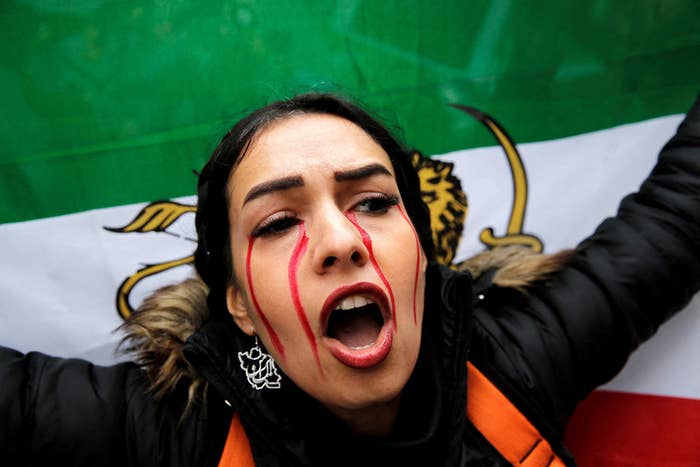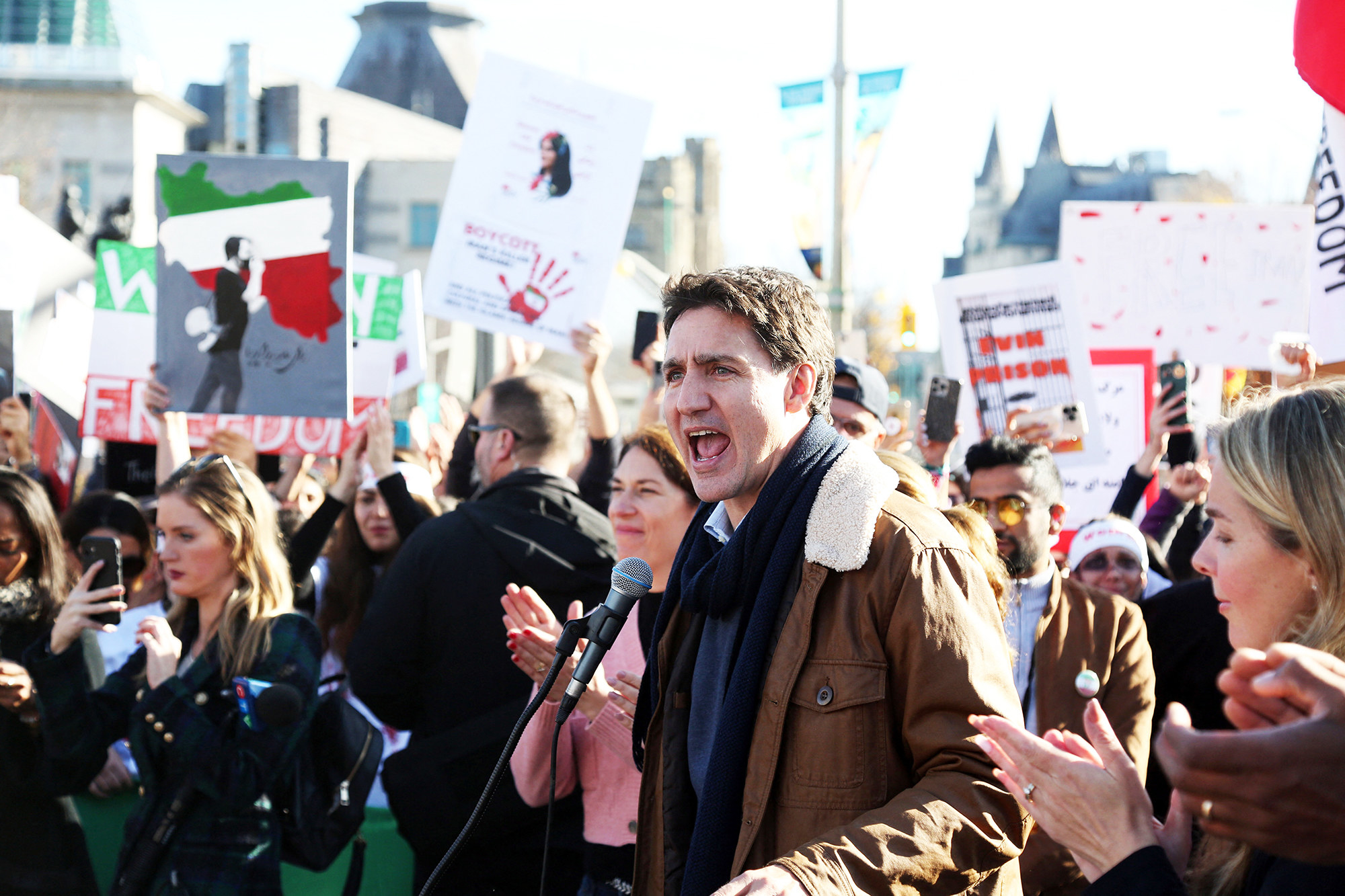
Viola Davis, Canadian Prime Minister Justin Trudeau, and thousands of social media users circulated a false claim that 15,000 Iranian protesters had been sentenced to death by the country’s government in response to the recent civil unrest.
Independent fact-checkers determined that this figure, which was spread in viral Instagram graphics and across Twitter, is incorrect — but, they warned, the reality for demonstrators is still horrifying, and people should keep sharing accurate news about the Iran protests.
“The Iranian regime is brutal enough. They’ve killed over 340 people in 60 days, including 52 children — the youngest an 8-year-old child — and certain outlets have somehow made this story even more horrific by conflating headlines through a failure to understand the full context,” Skylar Thompson, the head of advocacy at Human Rights Activists in Iran, told BuzzFeed News. “It’s dangerous.”
Davis, like many other well-intentioned individuals, attempted to raise awareness by posting an image on Instagram of a demonstrator, captioned, “Iran sentences 15,000 protesters to death - as a ‘hard lesson’ for all rebels.”
“How this isn’t getting more coverage right now is beyond me, but that needs to change now!” the Woman King actor added. The post went viral across the platform.
Instagram flagged Davis’s post on Monday for containing “false information” with a note that read: “Independent fact-checkers say this information has no basis in fact.” The post is no longer on her page, and representatives for Davis did not respond to BuzzFeed News’ requests for comment.
Game of Thrones actor Sophie Turner also posted the image, calling for more awareness of what she believed would be a “mass execution.”
“This is one of the biggest humanitarian crises anyone has ever seen. Where is the coverage?!” Turner wrote. “Why isn’t this on the cover of your magazines? Or the headlines of your newspapers? The irony is… Iran sits on the UN women’s rights committee.” Her post has been removed.
“Canada denounces the Iranian regime’s barbaric decision to impose the death penalty on nearly 15,000 protestors,” the account for Canada's prime minister tweeted. “These brave Iranians were fighting for their human rights – and we continue to stand united in support of them, and united against the regime’s heinous actions.” The tweet was removed after 12 hours.

One of the main sources for the 15,000 figure was a Newsweek article that quickly gained traction online; the publication had previously reported that the Iranian Parliament “voted overwhelmingly in favor of the death penalty for protesters.”
The outlet appeared to walk back its reporting and said that it had corrected “a number of articles” by removing any reference to the Iranian Parliament supposedly voting for death sentences.
As it stands, five protesters, whose names have not been publicly disclosed, have been sentenced to death, the first being an individual found guilty of arson after allegedly burning a government building.
We've corrected a number of articles to remove references to the Iranian Parliament voting for death sentences. A majority of the parliament supported a letter to the judiciary calling for harsh punishments of protesters, which could include the death penalty.
The mass protests started in anger over the death of Mahsa Amini, a 22-year-old Iranian Kurdish woman who died on Sept. 16 while in the custody of Iran's morality police.
The task force, which is responsible for enforcing Islamic dress codes and morals and often targets women, detained Amini for wearing tight pants and "improperly" wearing her hijab. Her death has become the driving force of anti-government demonstrations and prompted global condemnation of the country’s abuse of human rights.
Protesters being met with resistance could expect harsh punishments as they were “dealing with a regime that is willing to go very far to hold on to power,” Mahmood Amiry-Moghaddam, director of Iran Human Rights, an organization based in Norway, told BuzzFeed News. He noted that although the viral 15,000 figure is inaccurate, mass execution of prisoners is not an unprecedented response by the Iranian government.
Daily Statistics on Iran Protests #Iran #Mahsa_Amini #HumanRights #IranRevoIution #مهساامینی
“It's absolutely a possibility,” Amiry-Moghaddam said. “In the 1980s they used to do it publicly, saying that it was protesting, but now the political cost of such executions is so high that they will charge them for something else.”
Sharing accurate information is one way to show solidarity with protesters in Iran. Nearly 350 demonstrators have been killed and over 15,000 have been arrested, according to HRANA. Activists fear what will happen to those currently detained. But just because an Instagram post fits our expectations or worldview, fact-checkers and activists note that it’s still important to only share correct information and direct efforts to halt human rights violations.
“Now is not the time to spread misinformation; it is time to work to prevent this from moving forward through every single diplomatic channel available,” warned Thompson, who also suggested that many of those in police custody were at risk of severe punishment and harsh sentences designed to break the movement. Thompson was concerned that having world leaders such as Trudeau sharing misleading posts distracted from reporting what was actually happening on the ground and endanger protesters.
Amiry-Moghaddam said people should follow human rights organizations such as Iran Human Rights and Amnesty International for vetted information.
And the message of the protests, the biggest human rights movement in Iran’s history, is one that should be shared.
“We're talking about people who have been treated as second-class citizens, either as a woman or as minorities,” Amiry-Moghaddam said. “And if they manage to bring about this change, its impact will go far beyond Iran's borders. We are talking about, I would say, a revolution of dignity.”
